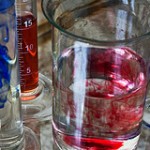$2M Grant For University Of Florida Will Bolster STEM Teaching

greenlight for girls/flickr
Middle and high school STEM teachers in Florida will get more professional development under the $2 million grant.
Young students who have their eyes on a future in STEM-related careers are getting a boost from the University of Florida (UF) in Gainesville.
Gov. Rick Scott wants more degree programs in STEM fields – science, technology, engineering and mathematics.
Scott believes that if Florida produces more STEM graduates, companies will be lured to the state and more high paying jobs will be created.
Now, UF’s College of Education has been awarded a $2 million, two-year grant from the state to create research-based, professional development support for new science and math teachers in middle and high schools.
The university has established a program called Florida STEM-Teacher Induction and Professional Support, also known as the Florida STEM-TIPS Center.
Through this project, teachers will be provided with mentoring, training, and other support during their first two years on the job.
Griffith Jones, a UF science education professor, will oversee teacher development activities statewide.
“We aim to work with districts to reverse the lack of teacher induction support that historically drives nearly one-third of new teachers from the classroom by their third year of teaching,” Jones said.
The work will start in Dade, Duval and Palm Beach counties, where UF has partnerships with the local school districts. Activities include professional-development training in new curriculum standards and grade-specific mentoring.
The center will also host webinars and online networking opportunities for science and math teachers.
A joint news released from UF and the Florida Department of Education (FDOE) cited projections that show the country will need 280,000 new math and science teachers by 2015.
The FDOE grant will also enable UF professors to visit state universities to tout a STEM teacher preparation program called UTeach. It’s the model for UF’s own UFTeach program.
It recruits “top science and math majors into teaching by offering a creative curriculum with progressively complex field experiences teaching those subjects in area schools.”
